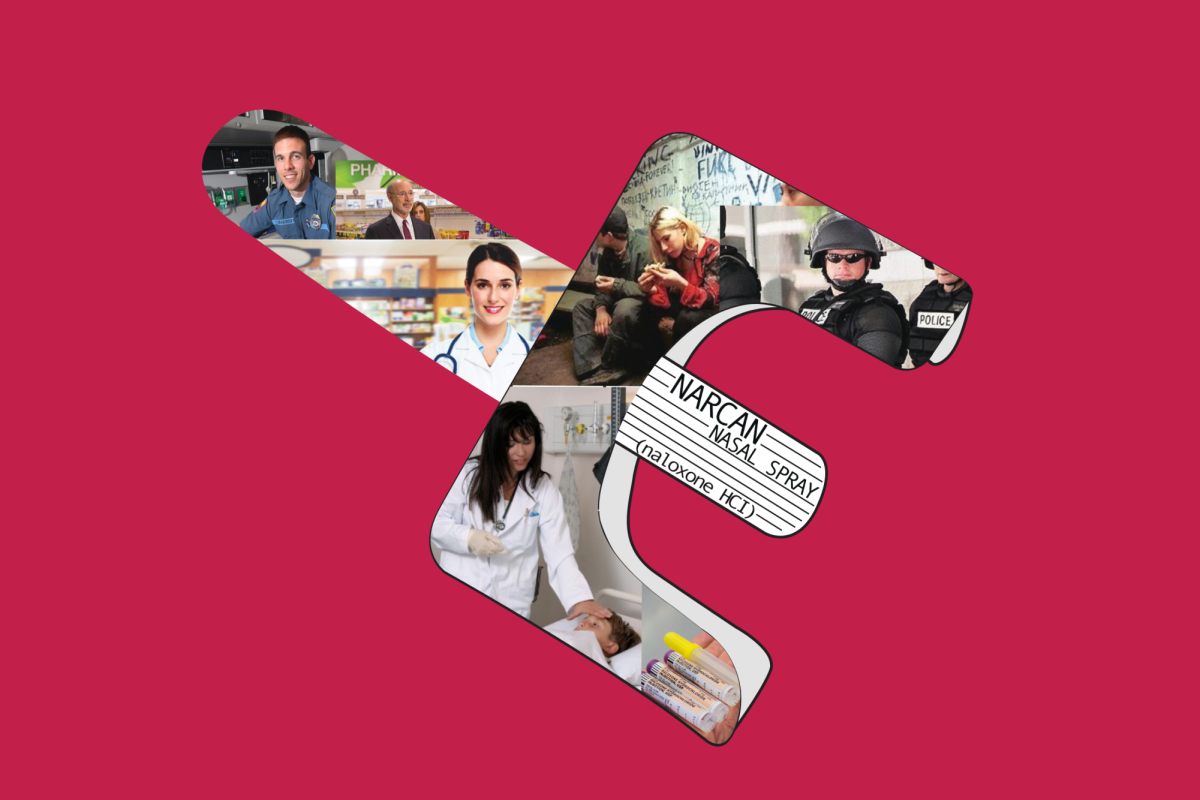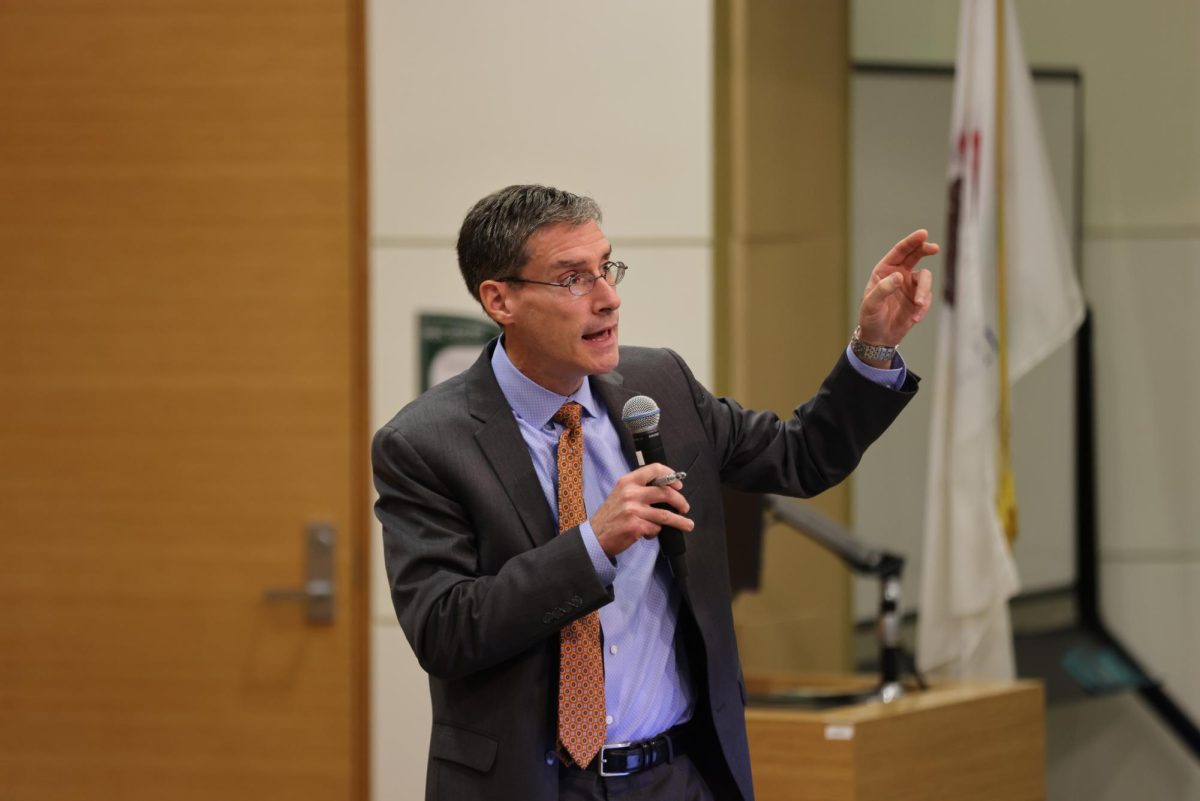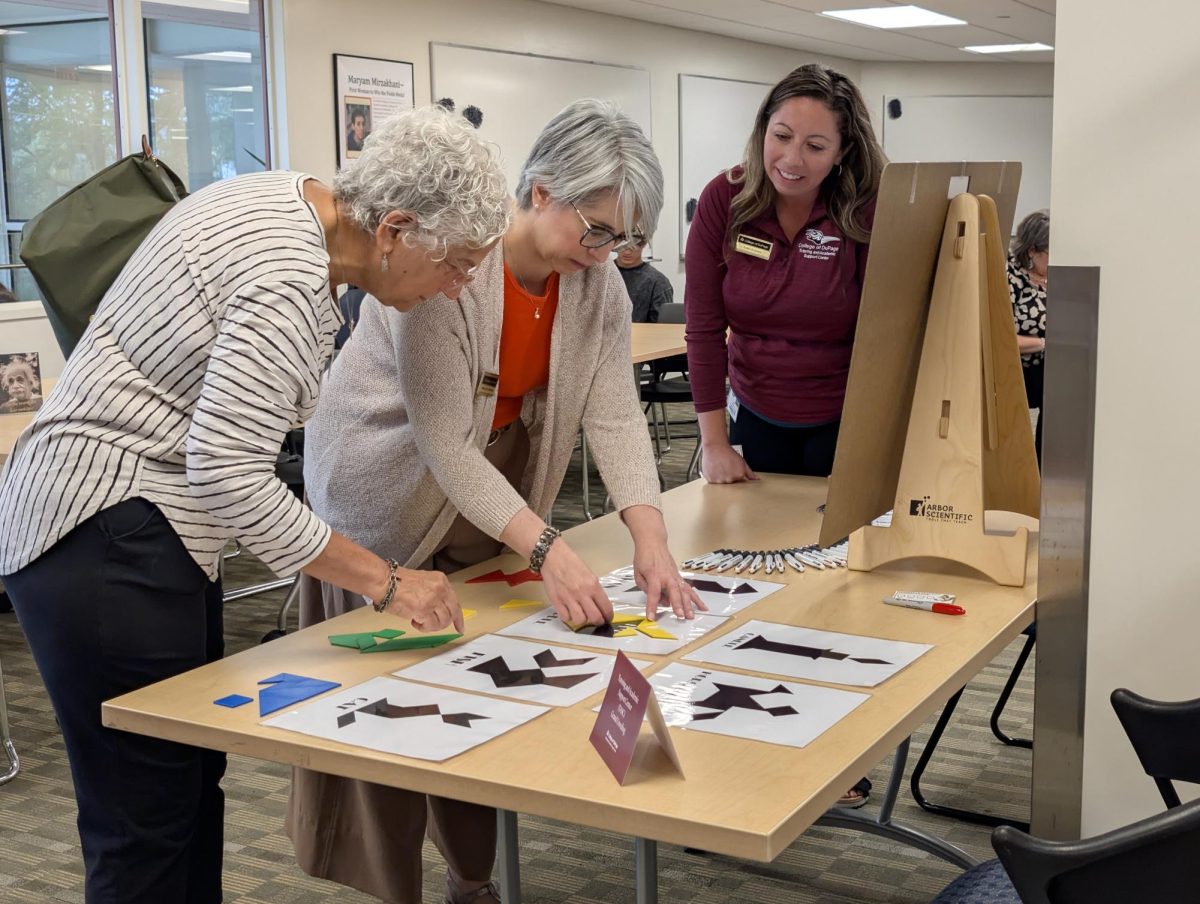109,179 people in the United States died from an opioid overdose in 2022, according to the Centers for Disease Control and Prevention. In Illinois, from 2019 to 2021, the Illinois Department of Public Health reports a 35.8% increase in fatalities due to opioid overdoses.
The Food and Drug Administration (FDA) approved Narcan (Naloxone) in March 2023, an emergency medication used to reverse opioid overdoses, to be sold as an over-the-counter drug. Starting this month, it’s now being sold in pharmacies like CVS and Walgreens and a prescription for Narcan will no longer be required to obtain it.
“Addiction is not like a lack of willpower. It’s not a lack of knowledge. It’s an actual brain change where you feel like you have to engage in this behavior,” said Jason Florin, a professor at COD teaching courses on addiction and psychopharmacology.
If an individual is suspected of overdosing on any kind of opioid, like heroin or fentanyl, the top of the Narcan device is inserted into one of the individual’s nostrils. A spray is then released through the nose by pressing firmly on the bottom of the device.
“It is a lifesaving drug, no question about it. First responders have now had access to it for several years,” Florin said. “This move by the FDA I think makes a lot of sense, because it is a very safe drug.”
Florin’s first job out of college was working at an inpatient psychiatric hospital, where he assisted people with acute and severe mental illnesses. He then worked at Woodridge Interventions, a facility that offers substance abuse treatment for adolescents and adults.
Alongside being an instructor at COD, Florin did case management in Will County’s drug court program, but spending time at Woodridge Interventions shaped him the most.
“As counselors, even though we’re coming there almost every day, it’s like we’re coming into their house in a lot of ways,” Florin said.
Inside the treatment facility, Florin was assigned to a unit of 35 men, where almost all in the program came straight from prison. Battling various forms of addiction, clients in his unit would take up residency at the treatment site for three months or longer.
“When I was doing it they still had these 90-day programs, so clients had a pretty long time to get their brains in a better place and learn how to live with better habits,” Florin said. “Start building some new healthy relationships and then transition back into the community.”
Florin could never forget one of his very first clients he was looking after. The man was a heroin user and went to prison after being involved in a string of residential burglaries. Anything stolen in these burglaries that could be sold was used to continue feeling the addiction. Regardless of any substance issues or criminal history, Florin refused to define the man’s life by it.
“I could understand where he was coming from,” Florin said. “Even though he had this really extensive criminal background, I didn’t see him just as that. Even after treatment, he kept in touch with me.”
From Florin’s time when he first started out at Woodridge Interventions, client intake for individuals with opioid addiction has seen a significant increase.
“We were sort of at this precipice of treatment being primarily for people with alcohol and cocaine use, versus transitioning into more heroin users,” Florin said. “It’s really starting to be where the opioid users are. Seventy-five percent of the admissions whereas before maybe they were 25%.”
Loved ones and family members can be the ones who suffer the most from someone who’s been afflicted by addiction.
“The person who’s using is numb or unaware of how much devastation is being left in the wake of their life,” Florin said. “It can sometimes be months or even years of recovery before they realize.”
According to Florin, addiction boils down to three words – compulsion, control and consequences. These three factors begin to take over an individual’s personality and define that person’s behavior. Recovery turns into healing the brain. These parts of the disease serve as a foundation for what is taught about addiction in the Addiction Counseling certificate at COD.
“That’s why the program does well, and a lot of students have their own experience with addiction,” Florin said. “They personally have that experience, or a family member had that experience. They’ve kind of seen that up close in some way.”
The DuPage Narcan Program (DNP) focuses on training community members and first responders on recognizing and responding to opioid overdoses with Narcan. Participating in any upcoming training session can be found here. The Substance Abuse and Mental Health Services Administration offers a 24-hour confidential helpline at 1-800-662-4357.









